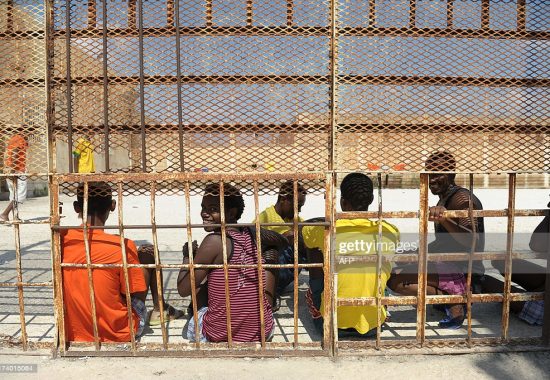Yesterday, yet again, we filed an emergency application for the release of two clients who had been held in detention illegally in Ħal Far & Safi Barracks for over 40 days. The Court of Magistrates, during yesterday’s sitting, ordered the immediate release of Awais Mohammed and Hasan Ali, after hearing the arguments put forward by both parties and ruling that indeed the detention was not based on any ground at law and was thus illegal. This was yet another successful habeas corpus filed by aditus foundation for illegally-detained persons.
It was clear that there was “confusion” as to the entity under whose orders they were actually being detained and on what grounds. The following transpired from the Court sitting:
- The Agency for the Welfare of Asylum-Seekers (AWAS) informed the Court that, just one hour before the sitting, Immigration Police had informed them that the men were “liberati” (released) yet pending awaiting clearance by the health authorities before they could be placed in open accommodation. No information was available as to the date from which the men were considered to have been “liberati“.
- The Detention Services also received the same information from Immigration Police. They further clarified that the Detention Services do not have the power to detain or release people. The DS explained that they detain people that the Immigration Police orders them to detain, confirming that detained persons are generally given a Detention Order explaining the reasons in fact and in law for their detention. When asked by our lawyer whether they were aware whether the two applicants were in fact given this important document, or whether this document is actually in the file at the Detention Services office, no clear information could be provided.
- The representative of the Department of Public Health stated that medical testing for the two applicants had been delayed, as they had not been immediately detained with the other people who had arrived on the same boat. However, the representative further noted that the two were in fact medically clear, presenting correspondence between the health and police authorities. The Department of Public Health confirmed to the Court that the men’s medical clearance had only been given on the day of the sitting.
- An officer from the Immigration Police stated that then men had been informed of the reasons of their detention. He could not confirm whether the Detention Order had been provided since the responsible Inspector was on leave on the day of the sitting. The Immigration Police underline that, from their perspective, the men were detained on medical grounds since they were awaiting to be medically cleared.
- Our lawyers noted that the applicants had never received information as to why they were being detained, neither orally nor verbally. They insisted that the Detention Order was never given to the applicants, noting that the Immigration Police failed to produced any evidence (e.g. a signed receipt) that this document was explained and shared with the two men.
- Furthermore, our lawyers noted that had the detention been ordered on the basis of a Detention Order, then this would have triggered the automatic review of such detention by the Immigration Appeals Board within a week of the start of detention. Since this review never happened, it is highly probable that the Detention Order was, in fact, ever provided.
- Neil and Mireille stressed to the Court that Maltese law does not permit the Police to detain asylum-seekers on medical grounds. Although there might be an assumption that the intention behind this detention is to safeguard public health, the law simply does not allow this.
After considering all the above, the Court declared the detention of the men to have not been based on any legal disposition and ordered their immediate release.
The Court of Magistrates has time and again confirmed the illegality of such actions and has previously raised concerns that large numbers of individuals were being detained without a legal basis in a democratic society based on the rule of law.
The Court’s decision may be downloaded here (.pdf).
This blog post was written by Carla Camilleri within the ambit of the Strengthening Access to Justice for Improved Human Rights Protection project funded by the:


